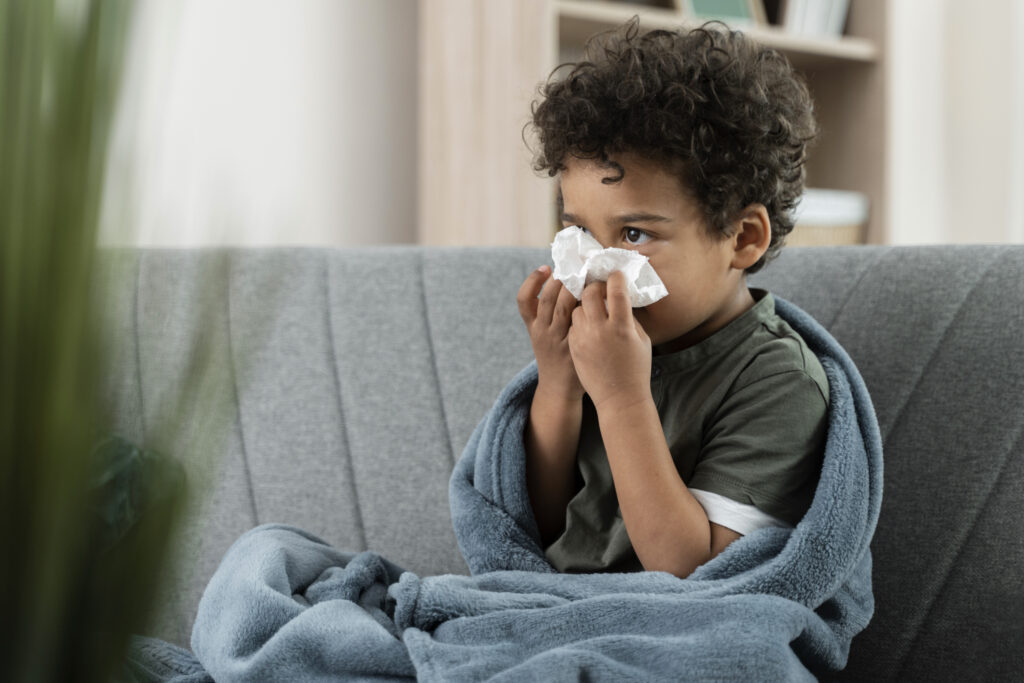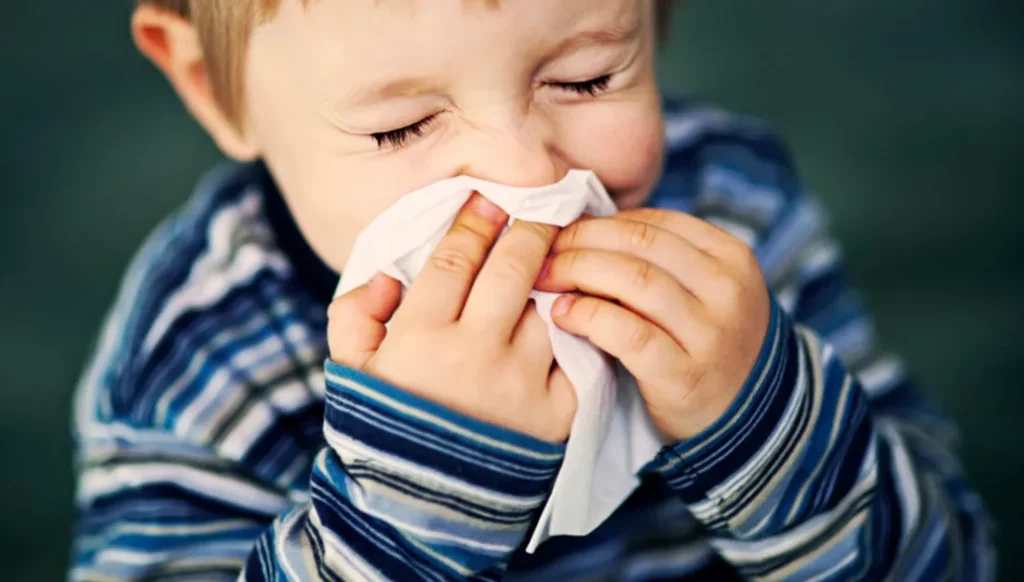
As a new mom, the slightest sniffle or sneeze from your baby can send you into a worry spiral. Infant congestion, newborn stuffy nose, cough for infants – these terms can sound scary, but rest assured, frequent sneezing in babies is usually a normal reflex. Here are 8 reasons why your little one might be a sneezing machine, along with some tips to soothe them:
- Tiny Passages, Big World: Newborn nasal congestion is common because babies have much smaller nasal passages than adults. These tiny passageways can easily get clogged with mucus, breast milk, dust, or even dry air, triggering a sneeze to clear the irritation.
- Developing Reflexes: Sneezing is a healthy reflex that helps clear irritants and keeps your baby’s airways functioning properly. It’s a sign their nervous system is working well!
- Dry Air: Dry air can irritate nasal passages, leading to infant stuffy nose at night. Using a cool-mist humidifier in your baby’s nursery can add moisture to the air and ease congestion.
- Secondhand Smoke: Smoke is a major irritant for tiny airways. Avoid smoking around your baby altogether and create a smoke-free environment.
- Allergies: Just like adults, babies can develop allergies to things like dust mites, pollen, or pet dander. If sneezing is accompanied by infant runny nose or congestion on newborn, talk to your pediatrician about possible allergies.
- Cold or Flu: While less common than other reasons, a cold or flu can cause newborn congestion and sneezing. If your baby has a fever along with sneezing and congestion, consult your pediatrician.
- Teething: Believe it or not, teething can sometimes cause nasal congestion and sneezing.
- Postnasal Drip: Sometimes mucus drips down the back of the throat, causing irritation and sneezing.

Soothing Tips for Your Sneezing Infant:
- Saline nasal drops can help loosen mucus and clear congestion, especially helpful for 2 month old congested babies.
- Suction bulbs can gently remove mucus, but be sure to use them carefully and follow the instructions closely.
- A warm steamy bath can help loosen mucus and ease congestion.
Remember: There are no miracle cures for infant cold remedies. Lots of fluids, rest, and keeping your baby comfortable are the best approaches.
When to Call the Doctor:
If your baby’s sneezing is accompanied by a fever, trouble breathing, wheezing, or persistent congestion, consult your pediatrician. They can help determine the cause and recommend the best course of treatment.
So the next time your little one lets out a big sneeze, take a deep breath, mama! Most of the time, it’s just their body doing what it’s supposed to do. But if you have any concerns, don’t hesitate to reach out to your pediatrician.
Is your baby a champion sneezer? Share your experiences in the comments below!

